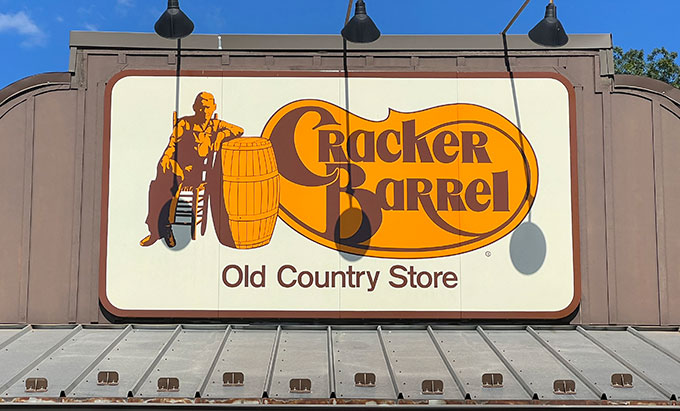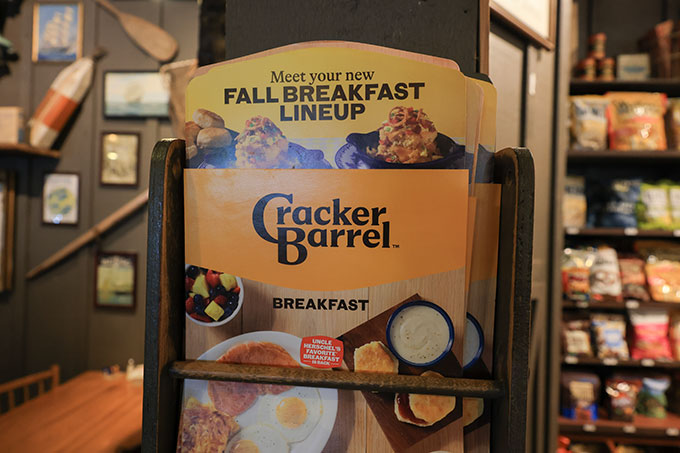Last week, another viral culture war story captured the headlines. The old-timey restaurant chain Cracker Barrel had rebranded, removing the old man and the barrel from its logo, and replacing it with a simple, modernistic, typography-only design.
At first, I dismissed the story as trivial. I have never set foot in a Cracker Barrel and, as such, have little stake in what is emblazoned above its doorways. But after speaking with conservative activist Robby Starbuck, I learned there was something beyond the logo that deserved our attention. According to Starbuck, Cracker Barrel, whose customer base is heavily white, conservative, and rural, had spent the last few years adopting all the fashionable left-wing corporate policies: DEI, Pride, pronouns, race politics, and the rest.
Finally, a reason to check your email.
Sign up for our free newsletter today.
The logo change might have caught the public’s initial attention, but the underlying political story had real stakes. If companies that depend on conservatives adopt radical left-wing policies, they must face the consequences.
And, thanks to the work of Starbuck and others, the social media uproar seems to have made a difference. As the story circulated through the media, the company’s stock price plummeted by as much as 17 percent. Cracker Barrel has quickly walked back its changes.

All this is salutary. Beginning with the revolt against Bud Light, the Right learned how to flex its muscles in the marketplace. Rather than defer to corporations as they did in the past, conservatives have realized that corporations have a culture and must be constantly reminded that, if they deviate from core American values, the consequences will be felt in their bottom line. Starbuck has had enormous success on this point, leading boycott campaigns that have changed policies at Harley-Davidson, Tractor Supply, John Deere, and other major brands.
A number of lessons can be drawn from this experience. First, conservatives can win these culture fights. Second, corporations follow the narrative in the media. Third, behavior changes through reward and punishment.

This last point is especially important. Some might dismiss the Cracker Barrel campaign as minor, or even embarrassing, given that the company is a decidedly down-class brand. But there is enormous value in making an example of the company and cementing a fear that conservatives can spontaneously lash out at any institution that crosses the line. Today, it’s Cracker Barrel; tomorrow it might be Pepsi, Target, or Procter & Gamble. As we have seen in recent years, corporate CEOs are highly sensitive to shifts in public opinion—and marginal changes in revenues—and will drop left-wing policies as soon as they become a liability.
The question is how to gain leverage. We are all tempted to be polite in public. But the fight over corporate culture can’t be won without securing real, tangible victories—which means real, tangible losses for institutions on the other side. Even if we don’t care about Cracker Barrel in particular, we should all care about the ideological capture of American institutions and use whatever power we have to reverse it.
And for that to occur, the Barrel must be broken.
Top Photo by Jeffrey Greenberg/Universal Images Group via Getty Images
City Journal is a publication of the Manhattan Institute for Policy Research (MI), a leading free-market think tank. Are you interested in supporting the magazine? As a 501(c)(3) nonprofit, donations in support of MI and City Journal are fully tax-deductible as provided by law (EIN #13-2912529).
Source link


















